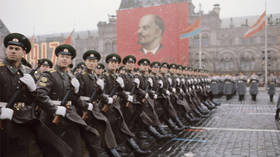'Jiving today, accused of treason tomorrow': How Russian jazz survived communist repression to celebrate 100 years
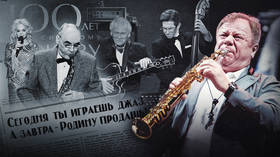
The history of Russian jazz began 100 years ago. While it has forged a unique path, the art form that evolved in the country has deep connections to that which thrived around the world. However, the path of this ‘bourgeois art’ was not easy in the Soviet Union, and it survived persecution only thanks to the musicians who were its faithful adherents.
In October 1922, the Russian musician, poet and choreographer Valentin Parnakh performed in Moscow for the first time with his ensemble called 'First Eccentric Orchestra of the Russian Federated Socialist Republic – Valentin Parnakh's Jazz Band'.
Parnakh had heard the music in Paris and became so fascinated that he purchased a set of the required instruments and brought them to the Soviet Union. His first – and subsequent – performances were great successes, especially among artists from the avant-garde. The concerts also inspired other musicians to try out the new genre.
Four years later, in 1926, Soviet audiences had the chance to encounter authentic jazz. American pianist Sam Wooding and his orchestra visited the country together with the Chocolate Kiddies show and performed in Moscow and Leningrad (the Soviet-era name of St. Petersburg). “[It was] the first country I’d ever been in where I was considered a human being,” woodwind multi-instrumentalist Garvin Bushell, who performed with Wooding, recalled later.
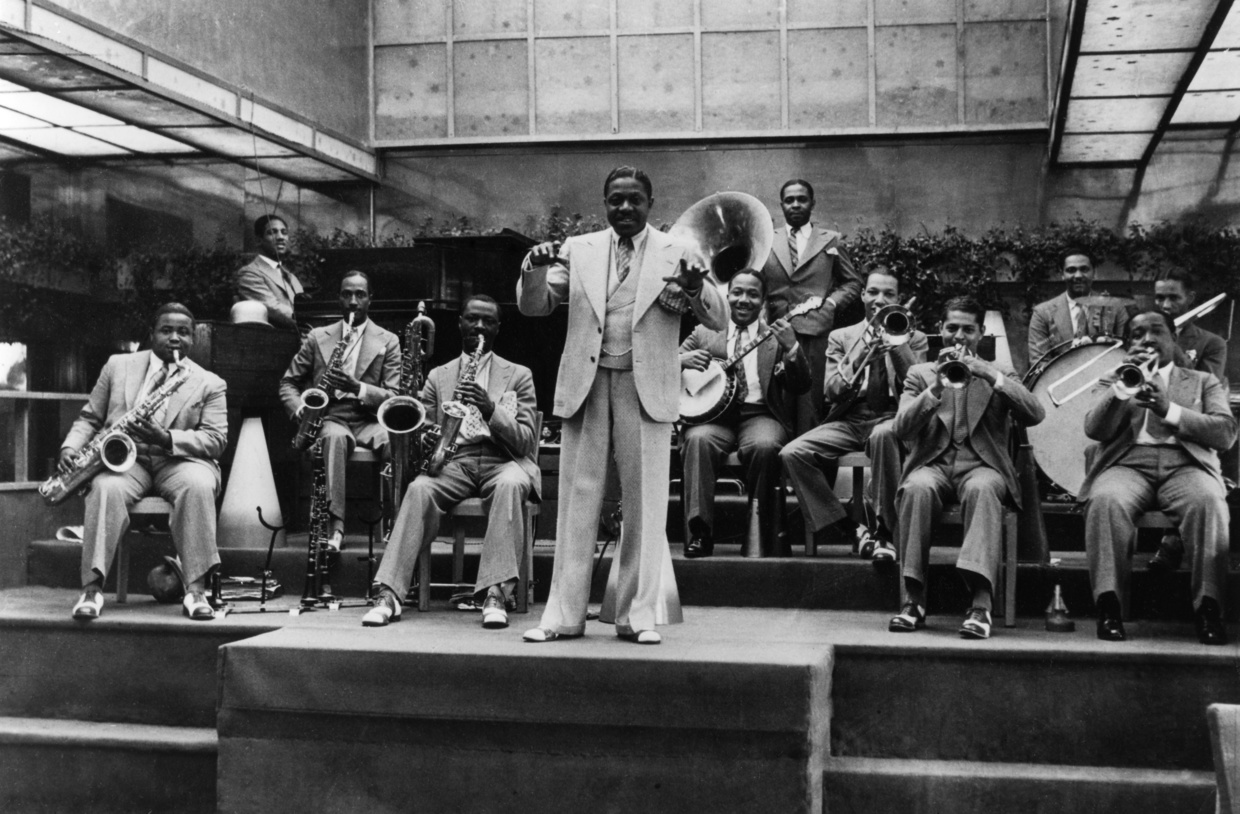
Several images from those performances can be seen in the silent film 'A Sixth Part of the World' directed by Soviet cinema pioneer Dziga Vertov. The episodes are featured in the part where the director condemns slavery and capitalism.
The same year, the ensemble of Frank Withers, together with saxophonist, clarinetist and the world’s first jazz soloist Sidney Bechet, also toured the USSR.
Jazz pioneers
It was a time of cultural exchange. In 1926, the Soviet agency tasked with promoting education and culture sent musician Leopold Teplitsky to the US to study local music. He worked in the orchestra of Paul Whiteman, often called the King of Jazz. They were the first to perform George Gershwin’s 'Rhapsody in Blue'.
Back home a year later, Teplitsky founded the 'First Concert Jazz Band' in Leningrad. The group, which performed in concert halls typically designed for classical music, was a great success.
Leonid Utyosov called Teplitsky "the first of the domestic musicians who showed the playing of jazz." Utyosov himself was the main jazz star of the USSR in the late '20s and '30s. Having assembled the band 'Thea-Jazz' (a portmanteau of Theatrical Jazz), he created a popular musical trend that acquired the scale of a theatrical performance.
In 1934, Utyosov and famous actress Lyubov Orlova starred in the first Soviet musical comedy featuring a jazz musician as a main character and a soundtrack with plenty of jazz compositions. 'Jolly Fellows', with tunes composed by Isaak Dunayevsky, became a sensation, and was Joseph Stalin’s favorite movie.
The film was even released in the US under the name 'Moscow Laughs'. Legend has it that even Charlie Chaplin offered his praise of the film.
“Before this film, Americans knew Dostoevsky’s Russia, now they have seen a big shift in the public psychology. People there are laughing loudly and cheerfully. This is a great victory. It is more persuasive than bullets and speeches," he is believed to have written.
‘Unbending of saxophones’
However, jazz was nevertheless a controversial phenomenon in the USSR. In spite of the success of Utyosov and others, many perceived the genre as a manifestation of bourgeois culture that was inappropriate for a socialist state.
In 1928, renowned Soviet writer Maxim Gorky published an article called 'About the Music of the Fat,' in which he blasted the new music genre as something belonging to “fat” capitalists who have no clue about real culture.
During the Second World War, however, jazz orchestras performed for soldiers right near the battlefield, although some of those forays ended tragically. For example, in 1941, the State Jazz Orchestra of the USSR was performing near the frontline when the musicians were surrounded by the enemy and most of them ended up being killed.
Utyosov, whose military songs are now considered classics, also performed concerts during the war. His music (which included more than just jazz) was in the Soviet mainstream until the mid-60s, and he himself became one of the immortal legends of the Soviet stage.
However, not all performers were so lucky. In 1930, Teplitsky was accused of espionage and jailed for three years. He was not the only jazz musician to have been persecuted. In fact, a lot of musicians were arrested and jailed in the '30 and '40s, although not necessarily because of their musical careers.
With the beginning of the Cold War, the ideological battle against ‘Western values’ intensified, and jazz became one of the targets. What became known as a time of the ‘unbending of saxophones’ spawned phrases such as “Today he’s playing jazz, tomorrow he’ll betray his Motherland” and “There’s one step from saxophone to a knife” (the latter one attributed to the Soviet leader Nikita Khrushchev). Thus, the art form remained repressed until the mid-50s.
Back to the stage
However, the years of the ban were unable to erase jazz from the Soviet cultural landscape. In 1956, the jazz orchestra of Oleg Lundstrem, which had not been allowed to be based in Moscow, finally got a chance to relocate to the capital. It should be noted that in 1994, the Guinness Book of Records recognized the Lundstrem ensemble as the oldest continuously existing jazz band in the world.
Jazz was given a new push in 1957, when Moscow hosted the World Festival of Youth and Students. This was a time of renewed cultural exchange, which inspired a whole new generation of musicians.
How could it survive the years of oppression? According to Igor Butman, a legendary saxophone virtuoso and head of the Moscow Jazz Orchestra, we should thank the enthusiasts themselves.
Musicians just had a belief: They believed in their art, in their talent, in the improvisation, they couldn’t live without their music.
“Jazz is a universal language: People can talk to each other, because they know certain styles, they know the music. A jazz musician is quite dangerous for ideology – what if he decides to play something not featured in the score, some kind of call?” he told RT.
According to Butman, officials soon realized that there were challenges far more dangerous, such as rock music. So, jazz was rehabilitated to serve as something of a counterweight. Jazz clubs started to emerge in different cities of the USSR, and American jazz stars such as Benny Goodman and Duke Ellington arrived to tour the country.
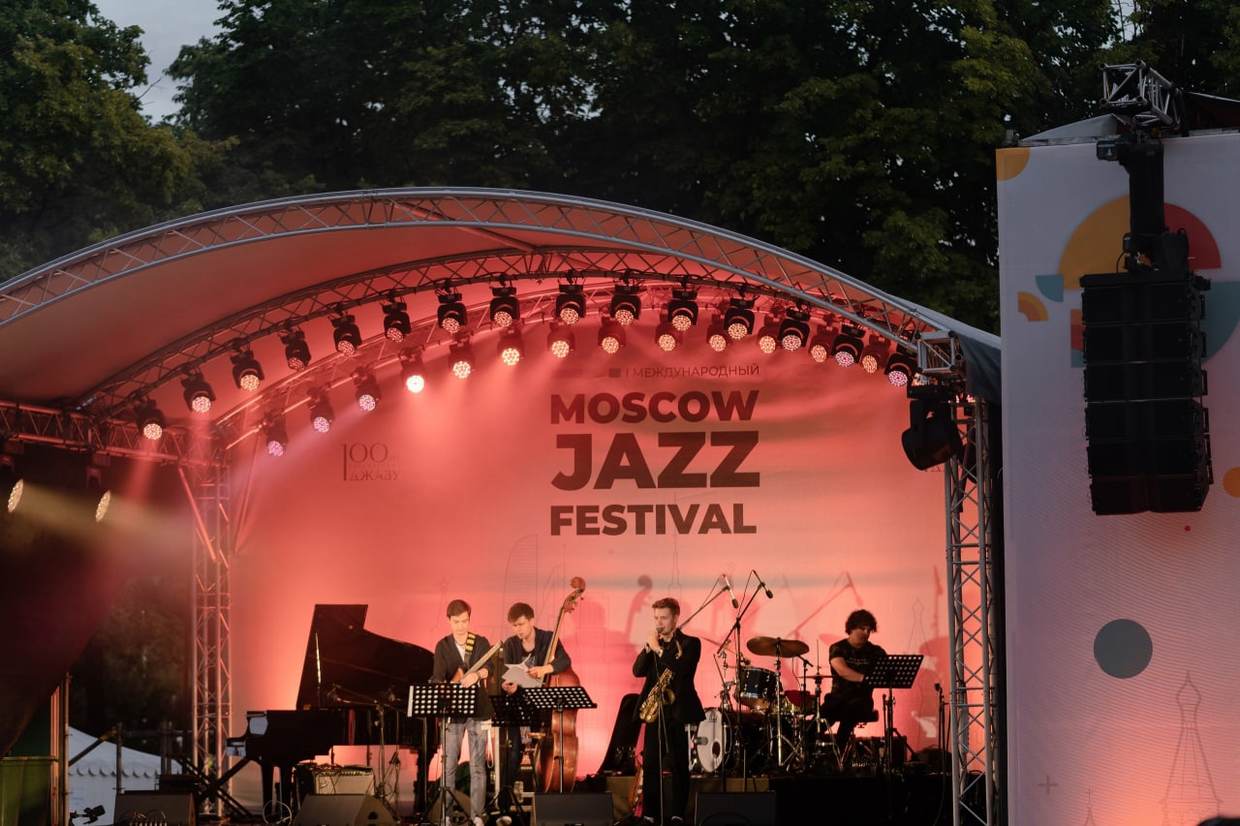
Naming all the jazz musicians who became legends of the Soviet stage would be a daunting task. Georgy Garanian, Nikolay Levinovsky, Igor Bril, Alexey Kozlov – these are just a few of the names, but there are many more.
“In the USSR, there was always political pressure on jazz musicians – the ideology changed from allowing [perfomances] to denying [them], from support to oppression,” Butman explains.
After the USSR collapsed, jazz received a strong impetus for development, as musicians could travel, study and perform in international ensembles. The ideological effect vanished, the state started to support jazz, so now we see new stars emerging.
In modern Russia, Butman is without a doubt the number one jazz personality. He has performed with Chick Corea, Grover Washington Jr., Natalie Cole and many other global stars. Last year, Wynton Marsalis and Jazz at Lincoln Center Orchestra performed together with Butman and the Moscow Jazz Orchestra in Moscow.
Butman also plays a key role in promoting Russian jazz. Music festivals organized by him are held all across the country every year, which he and the musicians from his orchestra headline. He also supports up-and-coming talent by participating on the jury of jazz contests and heading up the Jazz Academy in Moscow.
Rich tradition
Is there anything in particular that distinguishes Russian jazz? According to Oleg Akkuratov, a virtuoso pianist and soloist with the Moscow Jazz Orchestra, the country's style is influenced by Russian culture and derives a lot from this rich tradition. “You can find a lot of features of Russian traditional music in it,” he told RT. “Playing jazz, you can do almost anything: You can include parts of classical music or cite well-known Soviet songs. That’s why jazz can be understood … by almost everyone in our country.”
During his career, the 32-year-old musician has performed with opera singer Montserrat Caballe and participated in a concert at the residence of the Pope with the UNESCO choir. In 2018, he took second place at the prestigious Sarah Vaughan International Jazz Vocal Competition in the US.
While touring, Akkuratov adds a unique touch to his performances – he sings in the language of the country where he’s performing. The same goes for various Russian regions that have their own traditional languages.
Foreign languages are helpful in understanding other cultures and the roots of their folk music, he says. Common features can be found everywhere, no matter which country's music you are listening to.
“You can listen to a jazz standard, and suddenly discover a part or an intonation that reminds you of a Russian folk song,” Akkuratov says. “And it’s not because somebody is copying someone else. It’s because music culture is universal.”
Russian jazz as a world phenomenon
Even the current tense relations with the West are not able to halt the cultural exchange that the art form makes possible. The Moscow Jazz Festival, held this summer in the Russian capital, brought together musicians from countries such as Serbia, Brazil, Türkiye, and India.
“No culture is a stranger to jazz,” Butman, who helped organize the event, says. “It’s sometimes a matter of stereotype, to think that jazz belongs to one particular culture. There are brilliant Turkish musicians, Indian musicians, for example, Ravi Shankar, who performed with the Beatles and John Coltrane. And one of the most distinguished jazz pianists in the world, Joey Alexander, is from Indonesia.
Russian jazz is for sure a global phenomenon.
“Look at the success of our musicians on the world stage. We see it now, and in ten years, we will see even more. Young people want to play jazz, they are not afraid of becoming jazz musicians.”
The Moscow Jazz Festival was just one of many events held across Russia this year to celebrate the 100th anniversary. On October 1, a stunning concert was held on the main stage of the iconic Bolshoi Theater in Moscow.
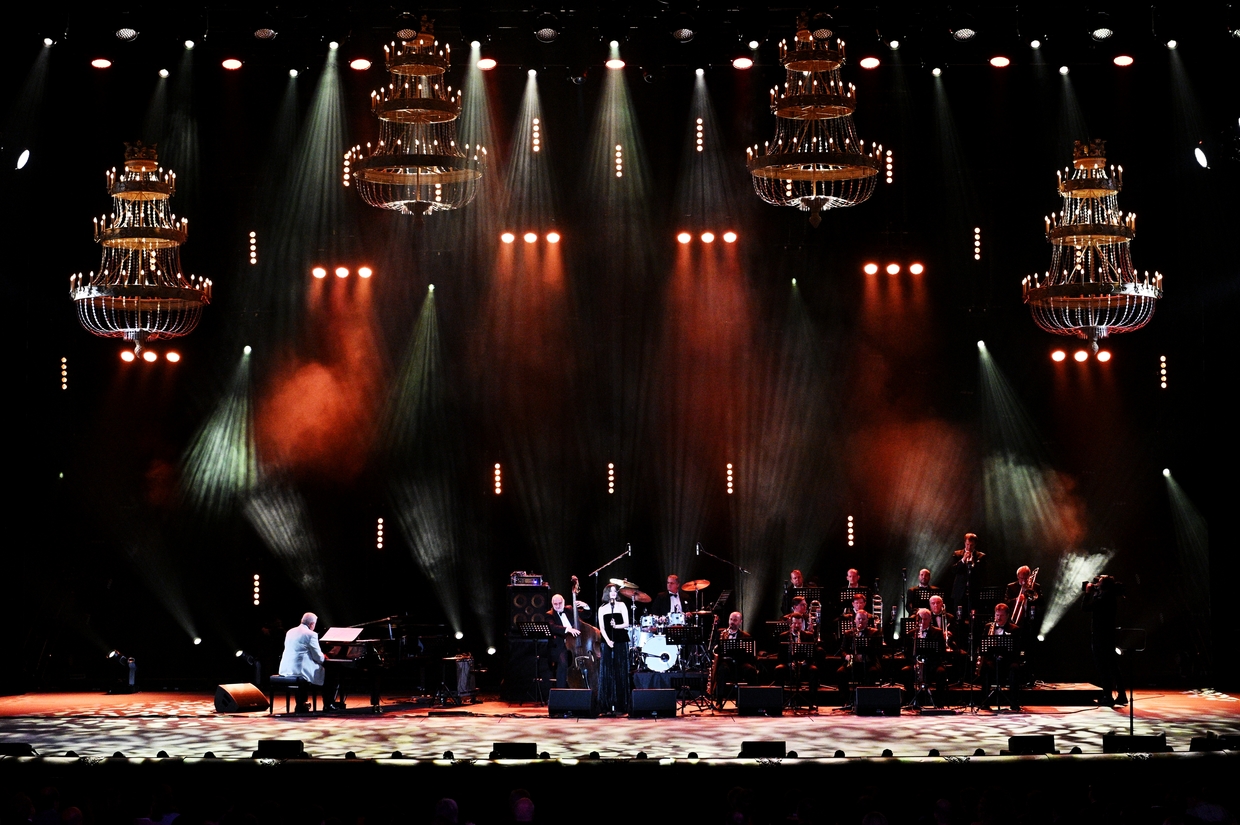
What will Russian jazz be like in 50 years, on its 150th anniversary? “It will be a good one,” Butman says. As for predictions, we will have to wait and see!
Akkuratov believes that the musical landscape is changing so fast that it’s hard to say for sure. “For now, I’m very happy that we have such a massive celebration of the 100th anniversary of Russian jazz. It’s great that we are doing so much to promote our art in the country and abroad.”

